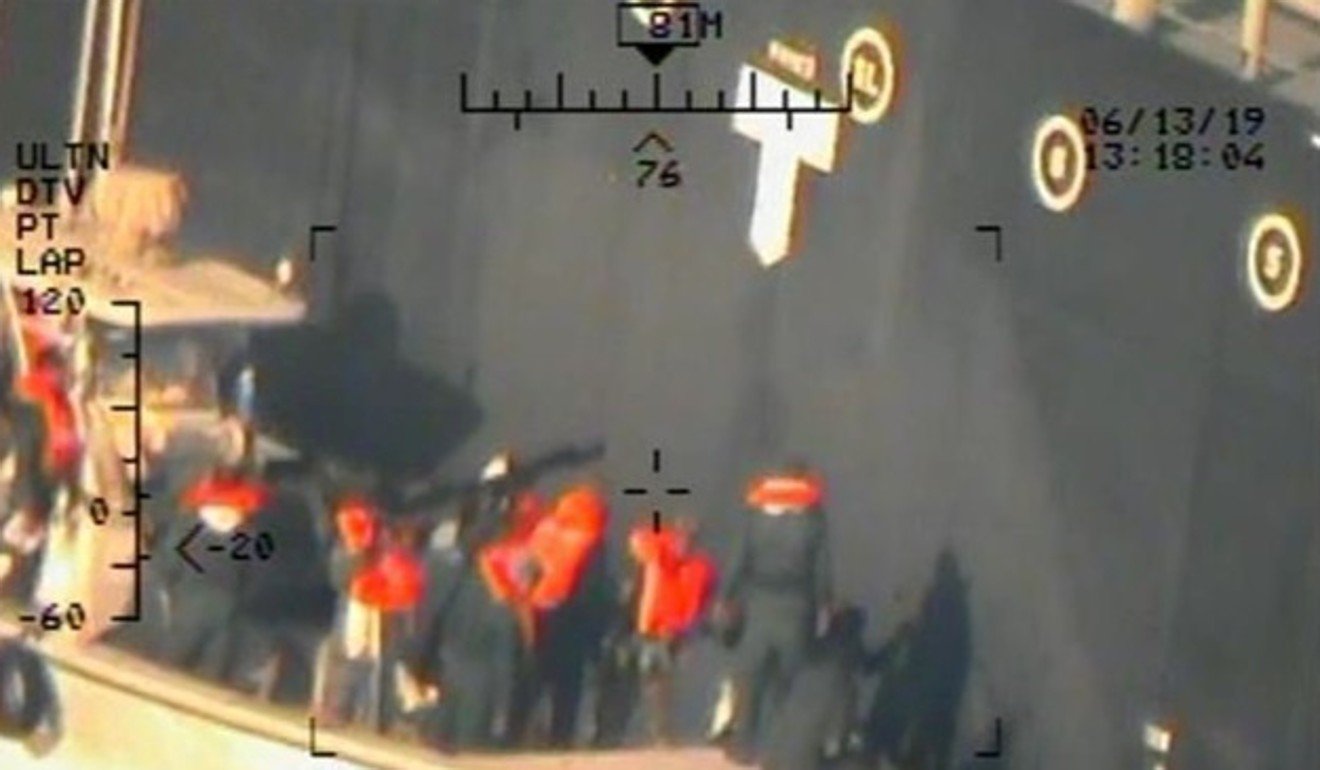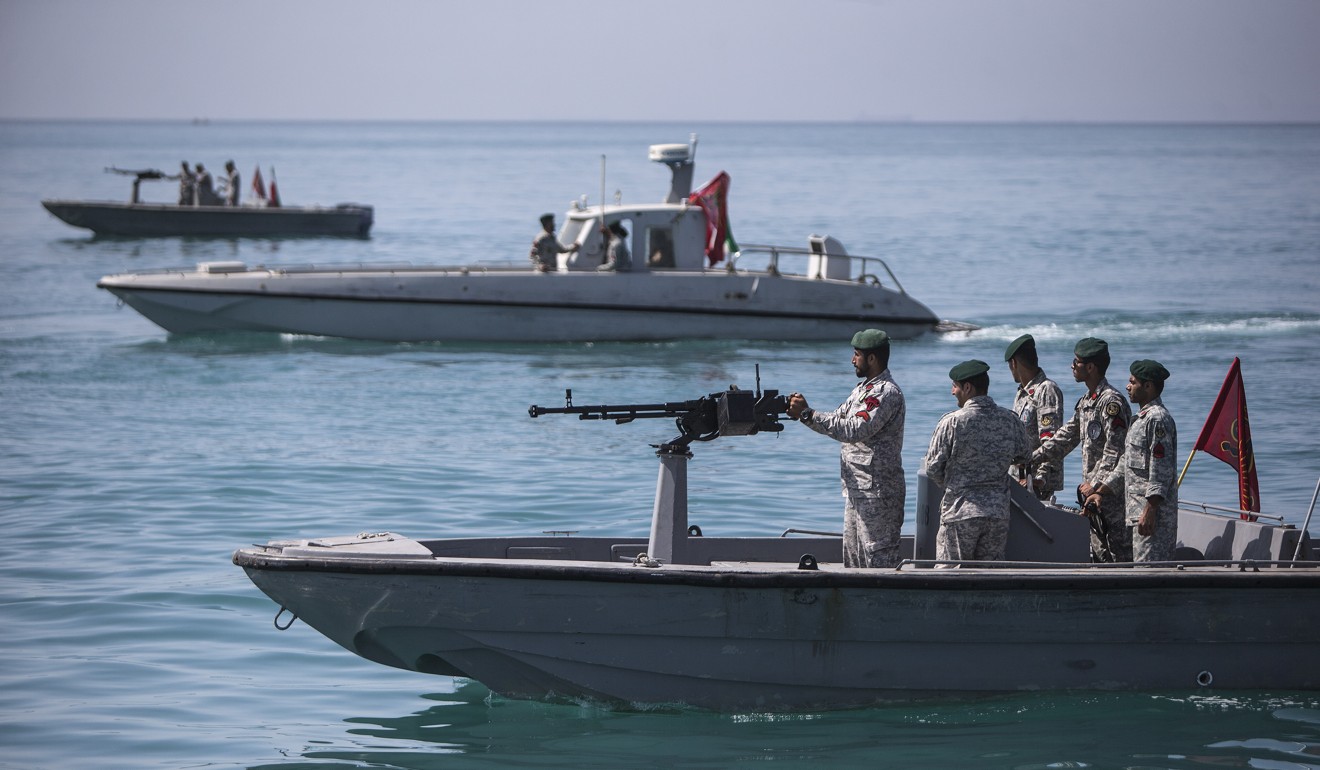
To prevent war with Iran, China could endorse a US-led Gulf military escort scheme
- The odds of China joining a multilateral escort plan led by the US are close to zero, but Beijing recognises its use
- In particular, China sees it preventing small skirmishes that could escalate, and so may provide tacit endorsement
Safe navigation across the Strait of Hormuz, which connects the Gulf of Oman to the Persian Gulf, and where about a fifth of the world’s oil supply passes daily, has become a key concern for the international community.
Iran could be using its speedboats and projectiles as a warning of what could come if the US and its allies were to try to attack its assets.
Iran to woo Chinese tourists with visa-free entry ‘within weeks’
China says Trump’s “maximum pressure” campaign against Iran is to blame for the current crisis. Its vocal support for the Iranians is not new. Beijing sees Tehran as a strategic partner, an essential oil supplier and an important cog in Chinese President Xi Jinping’s Belt and Road Initiative, which is aimed at improving connectivity and boosting trade across Eurasia and beyond.
However, the US government is trying to set up a coalition of the willing to ensure freedom of navigation in those troubled waters. This would be a revival of US operations to protect neutral vessels across the region in 1987 and 1988, in the final phases of the Iran-Iraq war.
US and Iran must talk – directly or indirectly
A 33-nation naval partnership based in Bahrain is already committed to maintaining maritime security in the Arabian Sea, even if it has a special focus on counter-piracy. The Combined Maritime Forces, which patrols an area encompassing some of the world’s most vital shipping lanes, is commanded by a US vice-admiral, but it is unlikely that all participants in this multilateral task force will heed the US call to form a military coalition escorting tankers near Iranian waters.

The chances of the Chinese joining US-endorsed naval escorts in the Gulf are probably close to zero, but Beijing could “informally” support Washington’s efforts in that direction. The presence of a multinational force in the region would in fact help deter Iran from launching pinprick operations against US warships and neutral convoys, and at the same time appease the Trump administration.
A full-blown war is the worst scenario for Beijing. Its negative impact on Chinese interests would outweigh the upside of seeing the US president diverting resources from the disputed China seas to the Middle East.
What China might be willing to do to prevent a US war with Iran
About 44 per cent of China’s oil imports comes from Gulf countries – Saudi Arabia is its largest supplier after Russia. In case of a conflict between the US and Iran, the Iranians that would likely try to close the access to the Strait of Hormuz to prevent US attacks on their core military installations, and Gulf oil supplies would be disrupted, damaging China’s energy-hungry economy.

It is not only a problem of oil shipping, however. A prolonged US-Iran war would also pose a serious threat to China’s geo-economic plans for the region. The Chinese have invested heavily to integrate the Persian Gulf monarchies and Iran into their system of trade relations under the belt and road scheme.
Significantly, Chinese investments in transport and infrastructure in Iran, Saudi Arabia, United Arab Emirates, Qatar and Kuwait stood at US$13.6 billion between 2013 and 2019, according to the China Global Investment Tracker.
If Xi can matchmake Trump and Kim, why not Iran’s Rowhani too?
China has achieved its economic miracle by seizing upon the US role as a global cop. So quite paradoxically, Beijing may weather a possible geopolitical storm in the Persian Gulf thanks to Washington’s determination to safeguard the Western-centric post-cold war order.
Emanuele Scimia is an independent journalist and foreign affairs analyst

